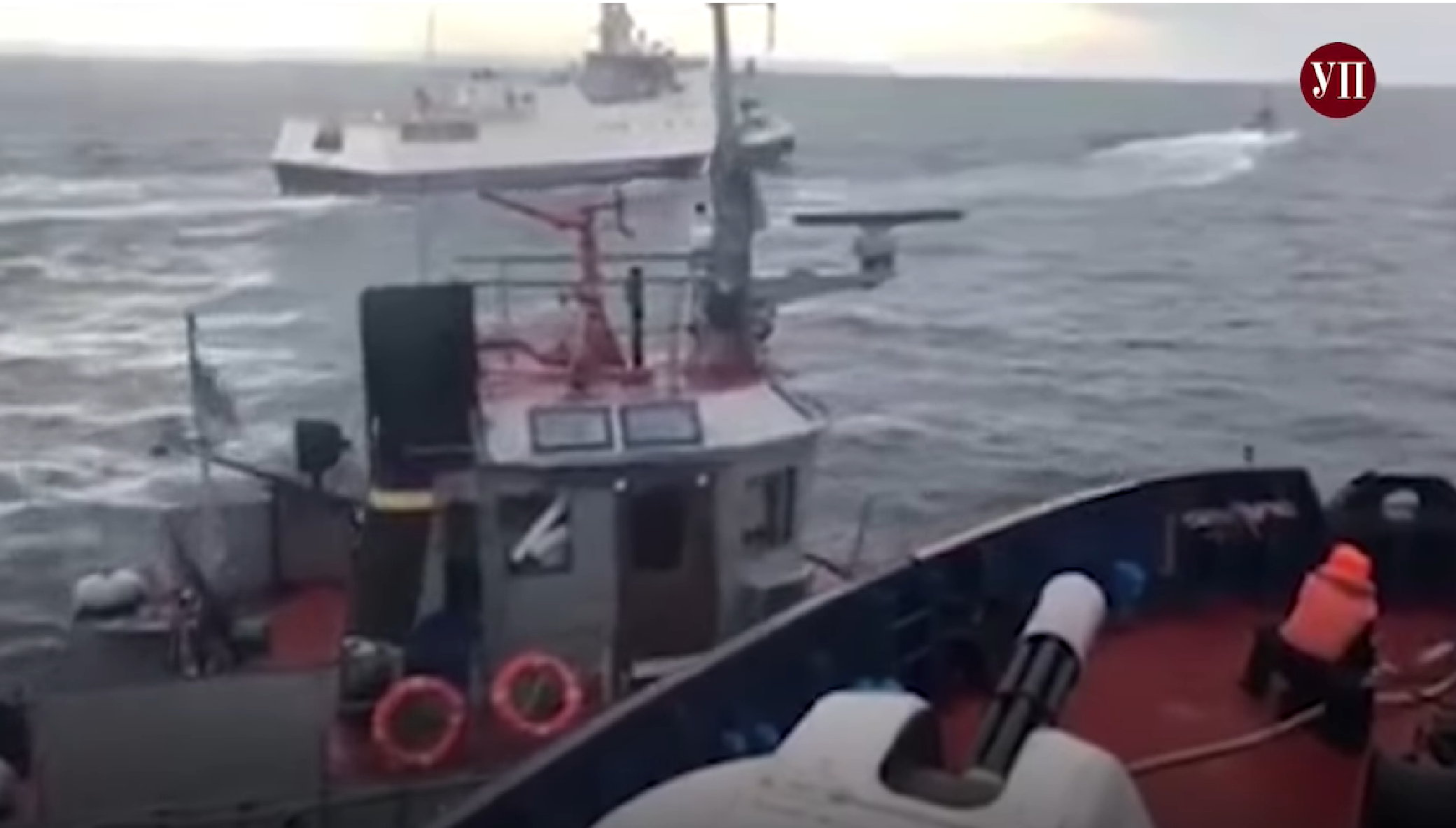Russia ordered to immediately release 24 Ukrainian seamen in major victory for Ukraine

The International Tribunal for the Law of the Sea has acceded to Ukraine’s request and ordered Russia to immediately release the 24 Ukrainian seamen whom it took prisoner on 25 November 2018, and to also return the three Ukrainian naval vessels it seized in its attack. This is a major victory for Ukraine and, most importantly, for the men who have been imprisoned in Moscow for six months and who should soon be released. The four decisions in the case on 25 May 2019 were all passed with a majority of 19 to 1, with the opposing vote from Russian judge Roman Kolodkin.
Ukraine’s position was presented by Lana Zerkal, Deputy Minister of Foreign Affairs,. She reports that the Tribunal’s Order “is a clear signal to Russia that it cannot violate international law with impunity. The seizure of three naval military vessels and the 24 servicemen on board was a flagrant violation of the immunity which military vessels enjoy in accordance with the UN Convention on the Law of the Sea and general international law.”
Although Russia has already violated international law on multiple occasions and ignored other provisional measures ordered, Zerkal believes that it will comply with the order from ITLOS. She recalls that this case was not the first time that Russia refused to attend the Tribunal hearing. It did so also over its seizure of the Greenpeace boat ‘Arctic Sunrise’, but did swiftly release the crew in compliance with the Tribunal’s order.
The Tribunal did not fulfil one of Ukraine’s requests, namely for the suspension of the criminal proceedings against the 24 Ukrainian servicemen. The charges, according to the Memorandum submitted by the Russian Federation are of “aggravated illegal crossing of the State border of the Russian Federation”. Provisional measures are imposed prior to the final examination of a case and ruling where there is a matter of urgency. Once the men have been released, it is less of a concern whether the charges are suspended. Since the case is continuing, Russia would, in any case, need to demonstrate that the men infringed Russia’s borders if it wishes to carry through these preposterous charges to the end. While finding a Russian court to convict the men is, unfortunately, no problem, Moscow would surely have no chance of convincing the Tribunal.
This was not the first time that Russia has focused only on denial of the Tribunal’s jurisdiction over the case, and it is cheering that this assertion was so overwhelmingly dismissed. Russia’s refusal to attend the hearings on 10-11 May was not allowed to impede progress.
Ukraine announced that it had lodged its suit against Russia on 16 April, and had asked for provisional measures under Article 290 § 5 of the UN Convention on the Law of the Sea to secure the release of the three naval vessels and the 24 men imprisoned in Russia.
Russia’s argument was that the Tribunal should not consider what it misleadingly terms “the Kerch incident” due to reservations on the applicability of the Convention allegedly agreed between the RF and Ukraine.
Ukraine rejected such an assertion, pointing out that Russia had violated one of the fundamental principles of maritime law, namely the immunity of naval vessels and their crews, As we see, the Tribunal clearly agrees.
There were slight differences in approach in this case. Although there are compelling grounds for considering all 24 men to be prisoners of war under the Third Geneva Convention, this was not highlighted in Ukraine’s presentation, since the Convention on the Law of the Sea applies strictly to peacetime.
For all its desire to reject ITLOS’ jurisdiction, Russia was effectively checkmated. It could hardly point to the men’s POW status as proof that this was out of the Tribunal’s scope without admitting to its act of military aggression (details here).
Recognition by any international court that there is a military conflict between Ukraine and Russia could result in Russia losing its right of veto at the UN Security Council, at least with respect to any votes on the situation in Ukraine.
This was doubtless the reason why Russian President Vladimir Putin reacted so swiftly to the International Criminal Court Prosecutor’s preliminary report for 2016 which found that Russia’s invasion and occupation of Crimea constituted an international armed conflict (details here about the report and Putin’s reaction).





